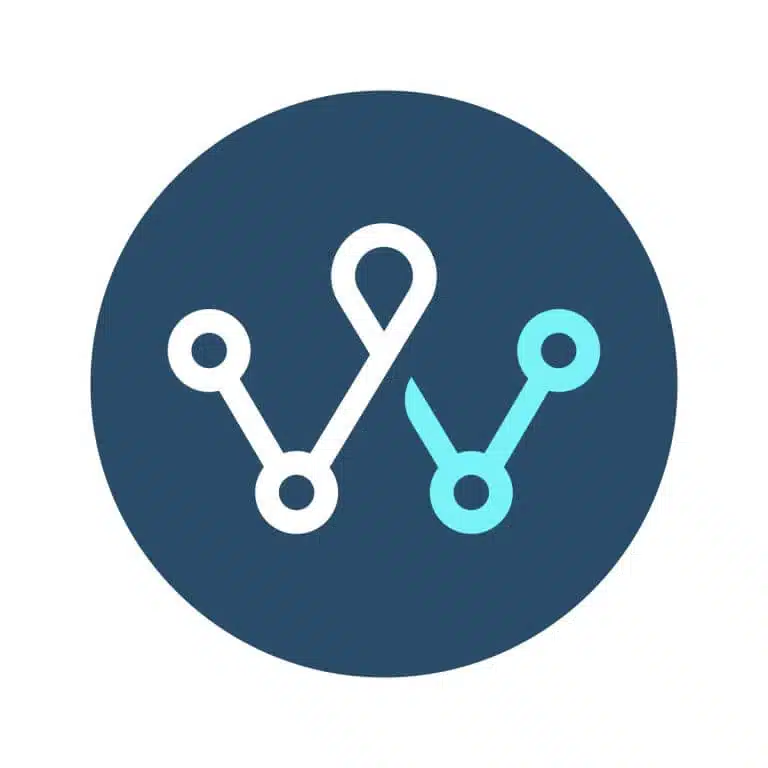Authored by: The WayPath CRM Team
Microsoft Dynamics 365 is a comprehensive solution used by many different types of businesses. In the enterprise or for companies that need to centralize data from a range of sources, it offers a way to break down silos and align processes, bringing CRM and ERP functions together in the cloud to enable a scalable, highly adaptable ecosystem.
When evaluating Microsoft Dynamics 365 pros and cons, there are several things to consider. While it proves to be an excellent solution for certain businesses, its suitability may vary. In this article, we will delve into the benefits of Microsoft Dynamics 365 and identify ways businesses can maximize its features.
What is the purpose of Microsoft Dynamics 365?
In a nutshell, Microsoft Dynamics 365 is a collection of third-party SaaS services and apps that companies can configure, customize, and leverage to enable a high-performance ecosystem. It functions as an interconnected CRM, ERP, and productivity suite that integrates your unique processes, data, and business logic.
For any large enterprise that relies on a distributed workforce, field teams, or disparate global branches, Microsoft Dynamics 365 connects people, processes, and policies to ensure end-to-end alignment, even when facing rapid change or sudden scale.
[blog_box_cta url=”https://waypathconsulting.com/contact-us/” button_text=”Talk to an expert”]Quickly understand the capabilities of Dynamics 365 with WayPath Consulting, a certified Gold Partner.[/blog_box_cta]
What business problems can Dynamics 365 address?
Being able to rapidly respond to changing customer demands and always having up-to-date information is critical in today’s fast-paced world. Microsoft Dynamics 365 provides a competitive advantage by bringing all that together into one place for access anytime, anywhere.
This application also allows you to provide frontline employees with the information they need when working directly with customers.
Tired of manually hunting through different applications, email inboxes, or file shares trying to find the right piece of data? This solution allows users to easily find what they are looking for regardless of where they live, connecting the information they need to those doing the work.
This application provides tools that allow your employees to be more productive and responsive to customers to help them meet their goals. The open platform also provides flexibility by allowing customers to customize their experience so they are empowered in how they personally use Dynamics 365.
How Does This Solution Compare To Other Options?
There are many CRM solutions available in the market today, both on-premises and cloud-based that compete for your attention – but Microsoft Dynamics 365 is unique in its capabilities and approach to providing a complete business solution. One of these reasons includes how it provides a new level of user productivity versus traditional CRMs, which typically require much more IT involvement. Some examples include:
With on-premises CRM applications, you need to set up servers and purchase additional hardware, as well as manage backup and recovery processes that can be complex. Additionally, if you want some functionality from another application, such as Office 365, you must install it before any user can use it. All of that complicates end-user access as you must account for many different types of licenses and manage these environments from an IT perspective, which is time-consuming and costly.
With Microsoft Dynamics 365, all the servers are maintained by Microsoft in the cloud, so there’s no hardware or backup process necessary on your part. That gives you one less concern to worry about! This also allows every user to be productive right away since they need a browser or even a mobile app without having to wait for IT help so they can get to work right away. And suppose you ever decide you want access to another Microsoft application, such as Office 365. In that case, it’s already installed, so users can immediately begin using it after signing up with a few clicks.
Most on-premises CRM solutions are often difficult to customize due to their complex architecture, which requires many internal development resources, making it costly and time-consuming. What’s more is that even after you’re done implementing, they can be hard to maintain on an ongoing basis.
In contrast, this cloud-based application allows for faster time to value since Microsoft constantly releases new features with each update. This ensures your customer engagement solution always meets your evolving needs by constantly responding to the business environment while providing a path for future growth. By eliminating customizations required in traditional CRMs thanks to its clean interface and flexibility, Dynamics 365 makes it easy for non-technical users such as marketers or salespeople without developer help to quickly customize their views and dashboards using the easy-to-use visual interface.
In addition, Microsoft has a dedicated services organization that works with customers to resolve issues they encounter as well as recommend new functionalities for future updates based on your needs and business requirements. This is the best of both worlds: agility and speed from a cloud platform combined with an experienced team of consultants that will help you get the most out of Dynamics 365.

Is Dynamics 365 the same as Salesforce?
While they serve similar purposes in helping businesses manage customer data and sales processes, Dynamics 365 and Salesforce have distinct features, pricing, and ecosystems. The choice between them depends on your specific business needs and preferences. Some key differences and similarities between Dynamics 365 and Salesforce are as follows:
- Deployment Options: Dynamics 365 offers cloud-based and on-premises deployment options, giving businesses flexibility in implementing it. Salesforce is primarily a cloud-based solution, but it also provides on-premises and hybrid options through the Salesforce Platform.
- Customization and Integration: Both platforms are highly customizable, allowing businesses to tailor them to their specific needs, and both offer seamless integration capabilities with other software, tools, and services.
- User Interface: Both platforms have user-friendly interfaces, but the look and feel of the interfaces are different. This often comes down to personal preference.
- Ecosystem and App Marketplace: Both platforms have a rich ecosystem of third-party apps and add-ons available through their respective marketplaces (Microsoft AppSource for Dynamics 365 and Salesforce AppExchange for Salesforce).
- Pricing: Costs can vary widely based on the features and scale of usage. It’s essential to compare pricing for your specific needs.
- Functionality: Both platforms offer a broad range of CRM functionality, including sales automation, marketing automation, customer service, analytics, and more. The specific features and tools can vary, so evaluating which platform aligns better with your organization’s requirements is important.
- Target Audience: Dynamics 365 is often associated with mid-sized and large enterprises, although it can be used by businesses of various sizes. Salesforce serves many businesses, including startups, small businesses, and large enterprises.
What are the benefits of Dynamics 365?
In today’s fast-paced business landscape, agility is essential. Microsoft Dynamics 365 benefits users with end-to-end connectivity that enables fast response to changing needs, accelerating time-to-value, and helping companies and government agencies move forward with confidence.
Microsoft Dynamics 365 benefits include:
- Integration with the Microsoft products you and your teams already love
- A low-code platform that is easy to use and configure to your exact needs
- The ability to develop your own apps on the platform or integrate the third-party apps you already use
- A virtually endless range of integration capabilities, including complete feature sets as well as à la carte tools
- A cloud ecosystem that allows users to connect to company systems from any device over the internet
- Business processes that are fully integrated and work seamlessly together, from finance to marketing, sales, meetings, and customer service
- AI-powered workflow automation capabilities
- Access to powerful analytics and business intelligence as data from all sources is consolidated into a single source of truth
- Full scalability to your needs, whether you are growing or downsizing
- The highest security standards and full compliance with GDPR and other data privacy legislation due to the Azure platform.
Microsoft Dynamics 365 Summary
Once you’ve considered all the Microsoft Dynamics 365 benefits, cost implications, and complexities of configuration and deployment, you can determine whether the solution is right for you. You’ll want to ensure the cost balances out with the business value and that it will be easy for your employees to adopt.
Growing companies, SMEs, and global businesses need a way to simplify and streamline their efforts to enable efficiency, visibility, and growth. Hiring a Microsoft Dynamics service provider can can help you accomplish this. Ultimately, the best way to ensure you’re maximizing your investment is to work with a Microsoft Dynamics 365 specialist that can help you configure and customize an ecosystem that suits your needs.
All in all, Microsoft Dynamics 365 provides excellent potential to streamline the line of business, enable increased agility for companies, and reduce costs throughout the organization.
Want to learn more? Read our Microsoft Dynamics 365 in our comprehensive guide.




